Washington, Oct 12 – As voters get ready to head to the polls in Wisconsin, RespectAbility has released its Wisconsin Disability Voter Guide for the upcoming senate and presidential races. Democrat Russ Feingold and Republican Ron Johnson are seeking the open senate seat. So far only Feingold, as well as presidential candidate Hillary Clinton, has responded and completed the #PwDsVote Disability Campaign Questionnaire for people with disabilities. RespectAbility will post Johnson’s responses once they are received.
The #PwDsVote 2016 Campaign Questionnaires were designed by and for people with disabilities (PwDs) and those who love them to know where candidates stand on key issues. RespectAbility is nonpartisan and does not endorse candidates. The questionnaires are purely for educational purposes as voters go to the polls.
According to a new report from Rutgers University, 35.4 million people with disabilities will be eligible to vote in the November 2016 elections, representing close to one-sixth of the total electorate. That’s an increase of nearly 11 percent since 2008.
The presidential questionnaire was created during the primary season and asked all of the presidential candidates to comment on 16 disability questions. Former Secretary of State Hillary Clinton responded by addressing all of the questions. Despite numerous requests in person and by phone and email, the Trump campaign has not yet filled out the questionnaire. The American Association of People with Disabilities and the National Council on Independent Living also has a nonpartisan presidential questionnaire, which both Clinton and Trump have completed. Libertarian Gary Johnson and Green Party candidate Jill Stein have not filled out either questionnaire.
The down-ballot survey was adapted from the presidential questionnaire to ask gubernatorial candidates 16 questions and senatorial candidates 17 questions. All answers are posted verbatim and in full on The RespectAbility Report, a publication that covers the intersection of disability and politics.
Wisconsin has an open Senate race and only Feingold has responded, allowing the 685,794 citizens with disabilities a chance to read his responses and see where he stands on the issues. RespectAbility will post Johnson’s responses when they are available.
Wisconsin is a leader in disability employment, as the employment rate for people with disabilities currently stands at 39.8 percent. Gov. Walker has made great strides in improving job opportunities for people with disabilities. However, there still is work to be done to improve outcomes for people with disabilities. Other states like South Dakota have employment rates near 50 percent. Wisconsin’s advances cannot be disregarded though. The upcoming election, paired with the recent implementation of the Workforce Innovation and Opportunity Act (WIOA), will allow Wisconsin the opportunity to continue to outline innovative programs that will increase opportunities and employment for people with disabilities.
In his response, Feingold repeatedly contrasted himself with his opponent.
On education he said, “Every student with a disability deserves access to a free public education that gives them the resources they need to succeed in school and beyond. I voted for the Individuals with Disabilities Education Act and support extending the act to make funding for special education mandatory. I also support full implementation of the Every Student Succeeds Act, particularly the measures on testing accommodation and preventing bullying and harassment. We need to make sure that the reports mandated in the act, like state reports on bullying, result in real changes that improve the learning environment for people with disabilities. I also support the federal PROMISE grant program, which has helped young people with disabilities throughout Wisconsin connect with career opportunities. My opponent, on the other hand, has actually introduced legislation that would limit the enforcement of the Americans with Disabilities Act in charter schools that receive taxpayer money.”
When asked “In your foreign policy and national security plan, do you plan to continue America’s tradition of standing up for the rights of oppressed people, including people with disabilities, around the world?” Feingold answered: “Yes. People with disabilities in America and around the world deserve equal dignity, respect, and opportunity, and the United States must lead by example by supporting the rights of oppressed people at home and abroad. A foreign policy that integrates disability isn’t just important for people with disabilities living in other countries, it’s also vital for Americans with disabilities when they work or travel abroad. The U.N. Convention on the Rights of Persons with Disabilities affirms the essential rights of persons with disabilities and creates standards that will make the world more accessible, yet the incumbent Senator, Ron Johnson, voted against it.”
Fully one-out-of-five Americans have a disability, and 52 percent of likely voters have a loved one with a disability. Only 34 percent of working-age Americans with disabilities have jobs, despite the fact that the vast majority want to work. More than 11 million working age people with disabilities are now living on government benefits in our country.
RespectAbility President Jennifer Laszlo Mizrahi said, “Wisconsin voters are looking for jobs so they can achieve the American dream, just like anyone else. Gov. Walker has done a lot but the competitive senate seat as well as the presidential race are critically important as well. It is also vital for us to know where the candidates stand on the disability aspects of economic, stigma, education, safety, transportation, housing, healthcare, foreign affairs, criminal justice and other issues. The candidates have hugely different ideas about how to deal with the issues. Thus, it’s extremely important to read their full answers so you can understand their vast differences. We also hope that Sen. Johnson will give his views in the future.”
Wisconsin Legislation Aims to Help People with Disabilities
There are 353,031 Wisconsinites with disabilities between the ages of 18-64. Additionally, there are 24,800 Wisconsinites ages 16-20 with disabilities. More than 106,000 Wisconsin students have individual education plans (IEPs). However, many Wisconsinites with disabilities have not yet received a disability diagnosis they need, and thus are not yet receiving the school accommodations and supports that they need to succeed. Many students who might need support to succeed academically instead find themselves trapped into a lifetime of poverty or flowing down the school to prison pipeline.
Wisconsin has the opportunity to work hard to improve outcomes in terms of competitive, integrated employment for people with disabilities. Currently 39.8 percent of working-age Wisconsinites with disabilities are employed compared to 81.2 percent of those without disabilities. View the rankings of all 50 states and compare.
Wisconsin is ahead of many states in terms of expanding employment for people with disabilities. Under the new Workforce Innovation and Opportunity Act (WIOA) plan, with strong leadership and implementation, people with disabilities in Wisconsin will be ever-increasingly contributing members of their communities in new and better ways. This will strengthen the economy for all people in Wisconsin.
RespectAbility, founded in 2013, is a nonpartisan, nonprofit organization working to end stigmas and advance opportunities for people with disabilities. It has submitted comments for all 50 state’s drafts of the Unified Plan as required under Section 102 of WIOA. The Wisconsin WIOA draft is well done. It creates a win-win-win strategy and system for vital improvements for Wisconsin’s workforce system and its ability to serve people with barriers to work, employers and taxpayers alike.
One of the most important facets of WIOA is that it raises expectations for youth with disabilities and assists states to provide them with the supports they need to ensure success. Indeed, as Wisconsin’s Baby Boomers retire and the state’s economy evolves, employers are starting to experience increasing talent shortage. Wisconsinites with disabilities are an untapped resource that can be trained to bridge that gap. Indeed, a recent detailed study by the Kessler Foundation and the University of New Hampshire shows the 70 percent of working age people with disabilities are striving for work.
Evidence shows that people with disabilities can provide a wonderful solution to companies and other employers that want to succeed. The diverse skills, greater loyalty and higher retention rates of people with disabilities are already starting to meet employer talent needs in increasing numbers around America. With WIOA, Wisconsin can benefit from that progress if it truly breaks down silos within government agencies and partners, and lets innovation, based on evidence-based practices, take place.
However, the gap in the labor force participation between people with and without disabilities is still too large around the entire country. This lack of employment for people with disabilities creates poverty, powerlessness, and poor health. Polls and studies show that people with disabilities want the opportunity to have the dignity and independence that jobs provide.
America has 1.2 million youth with disabilities, between the ages of 16 and 20. Each year 300,000 of them age into what should be the workforce, but stigmas and lack of knowledge about the capabilities of people with disabilities means that most do not find employers willing to hire them. Young adults with disabilities in all of these states are hoping to find work. They have high expectations and deserve the opportunity to achieve the American dream. Young people with disabilities may simply need some thoughtful help to transition into the workforce. See data on all 50 states here: State Data.
Remember to Vote
Wisconsin residents can vote for the candidates of their choice either on the standard voting schedule or through early voting. Wisconsinites have until Oct. 19, 2016, to register to vote for the presidential general election. Register to vote online at: Register to Vote. Voters also can cast an early vote. Early voting dates vary by municipality. More information regarding early voting and municipalities can be found at: My Municipal Clerk. Any registered Wisconsin voter can submit their vote through absentee ballots as well. To request an absent ballot, complete and submit an application for an absentee ballot to the municipal clerk in the county where you are registered to vote. More information and assistance regarding absentee ballots can be found at: I Want to Vote Absentee.
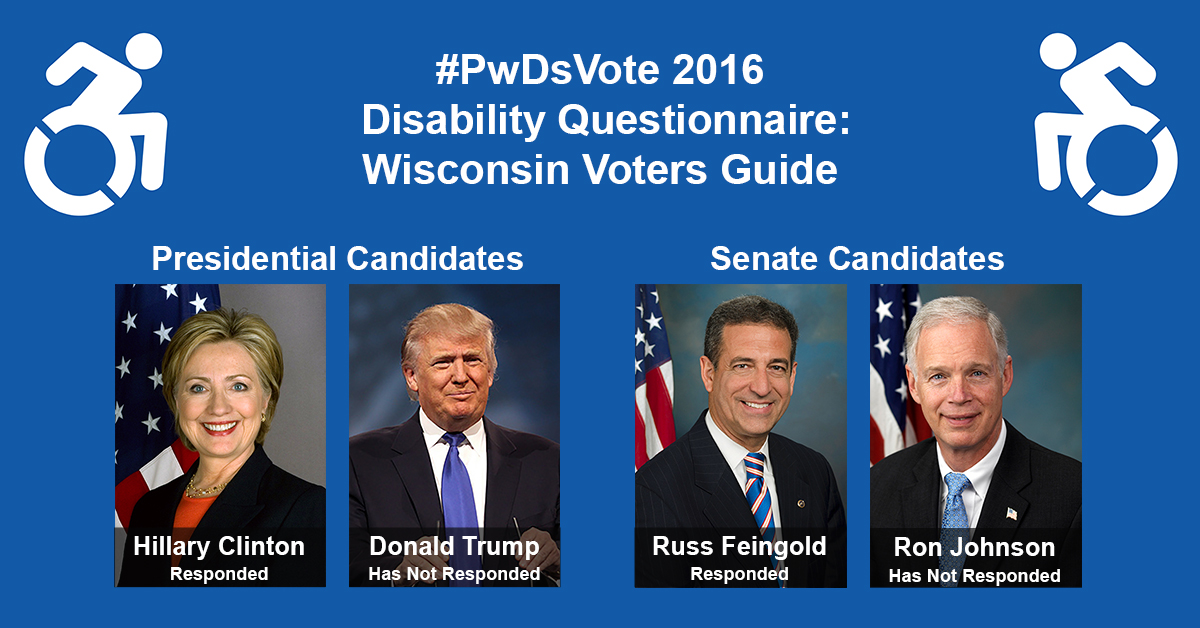

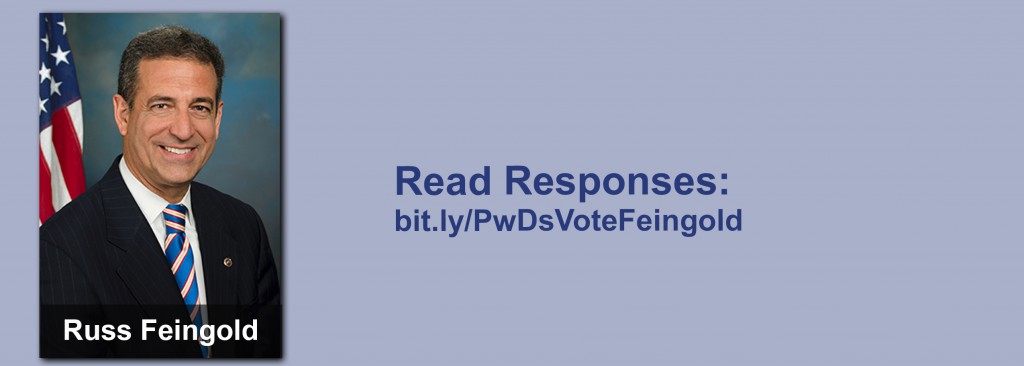
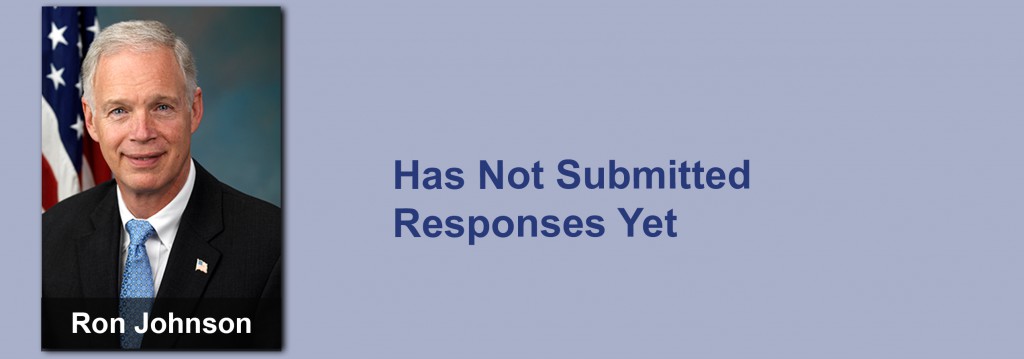
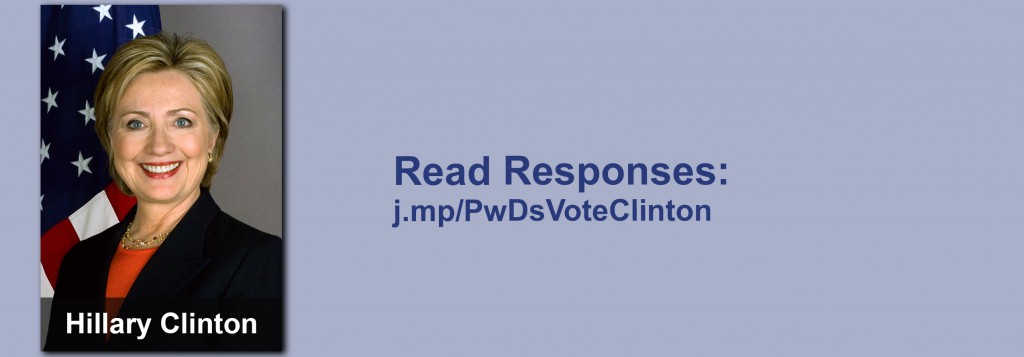
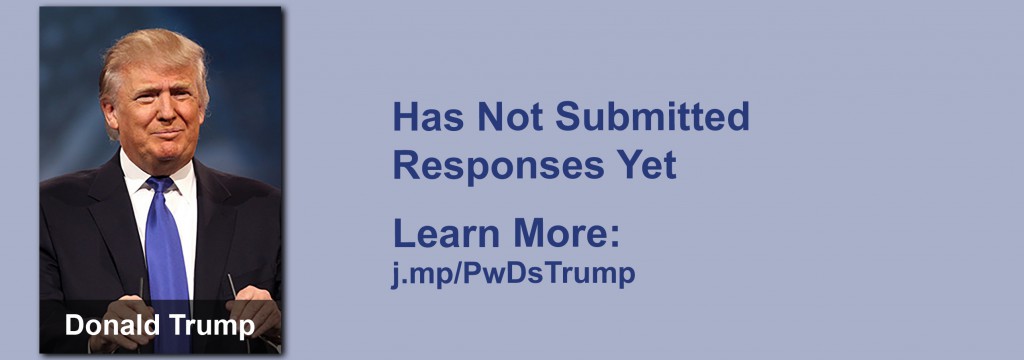

Be First to Comment